
 |
 |
 |
 |
|
|
رقم المشاركة : ( 13521 ) | ||||
|
† Admin Woman †
|
The Ladder of the Divine Ascent
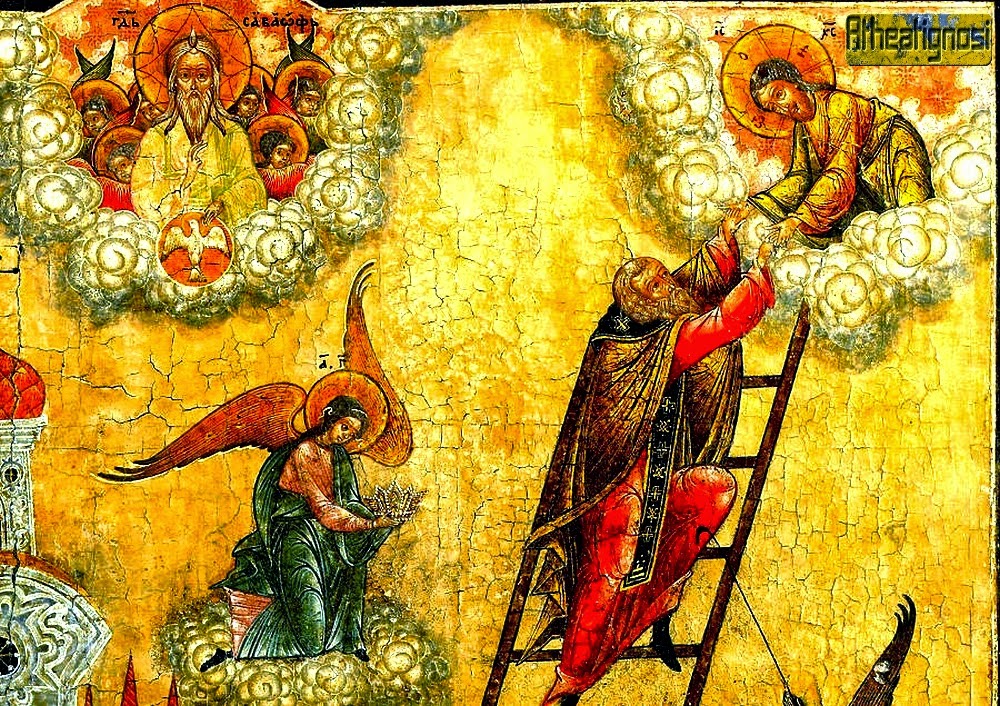 A man called his Spiritual Father with all kind of questions regarding his job. The man had a big research center that he was running and he wanted help regarding important decisions that he was going to make. The Elder responded on the phone: “Read every year at least once the very last chapter from the Ladder of the Divine Ascent from our Father the St. John Climacus. This is called To The Shepherd. It will guide you. I just wish that all of our political leaders will read it too!” Personal testimonies to Dr. Nick Stergiou |
||||
|
|
رقم المشاركة : ( 13522 ) | ||||
|
† Admin Woman †
|
The ones who follow Christ…
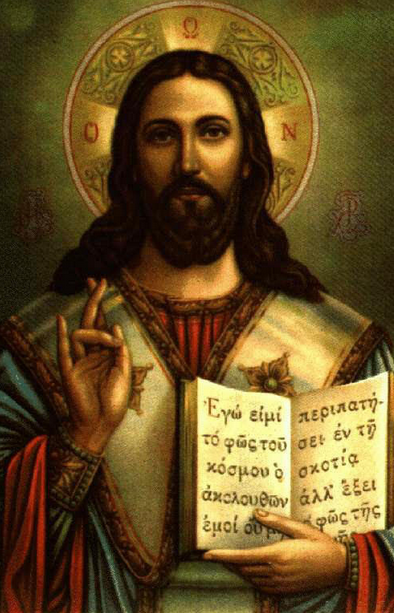 The ones who follow Christ The ones who follow Christ, with an unstated manner are becoming one with Him, carrying the burdens and the weaknesses of others. St. Sofronios of Essex It is better for the world to know you as a sinner, than God to know you as a hypocrite. St. John the Chrysostom |
||||
|
|
رقم المشاركة : ( 13523 ) | ||||
|
† Admin Woman †
|
4th Sunday of the Fast. Good repentance
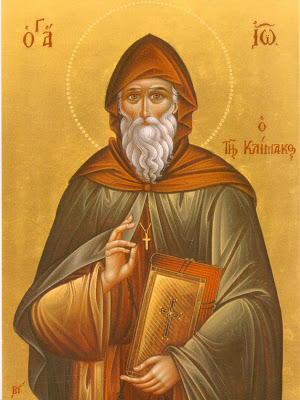 (Mark 9, 17-31) There are still three weeks remaining before the Resurrection of the Lord. Let us plead deeply for God to help us to accomplish that which we haven’t yet done until today. Many of us start Great Lent well. We enter the struggle with zeal, with gusto and jubilance.We fast from foods not only in terms of quality but also in terms of quantity, and spiritual fasting, fasting from the passions. Yes, many souls are struggling during this time. They are more cautious, have increased their prayer, and go to Church more regularly. However, as many of those who up until now did exactly what they could do and don’t feel – let’s take it in this way – that they’ve skipped over anything (I don’t know how easy it is to find such a person), there are just as many of us who in this way or that relax or lose ourselves. And for this reason it is necessary for us to renew our zeal. This is a great opportunity –the three weeks that remain –to intensify our struggle and to remember that while Great Lent is certainly a period of fasting, it is most essentially a period of repentance. The other things -some fasting, some prayer, some spiritual study –are painless. What costs us is repentance, since repentance is the death of ourselves. And real repentance is impossible unless we put ourselves to death. We won’t spiritually prosper, without having this purpose: to die, to abolish our ‘self’. And it is this that happens through repentance. For this reason, all of the troparia in this period are connected to fasting; however, the spirit of these troparia is repentance. (from the Second volume of the Book of Triodions) Holy Hesychasterion “The Nativity of Theotokos” Publications. Archimandrite Symeon Kragiopoulos |
||||
|
|
رقم المشاركة : ( 13524 ) | ||||
|
† Admin Woman †
|
Sin-despair-repentance
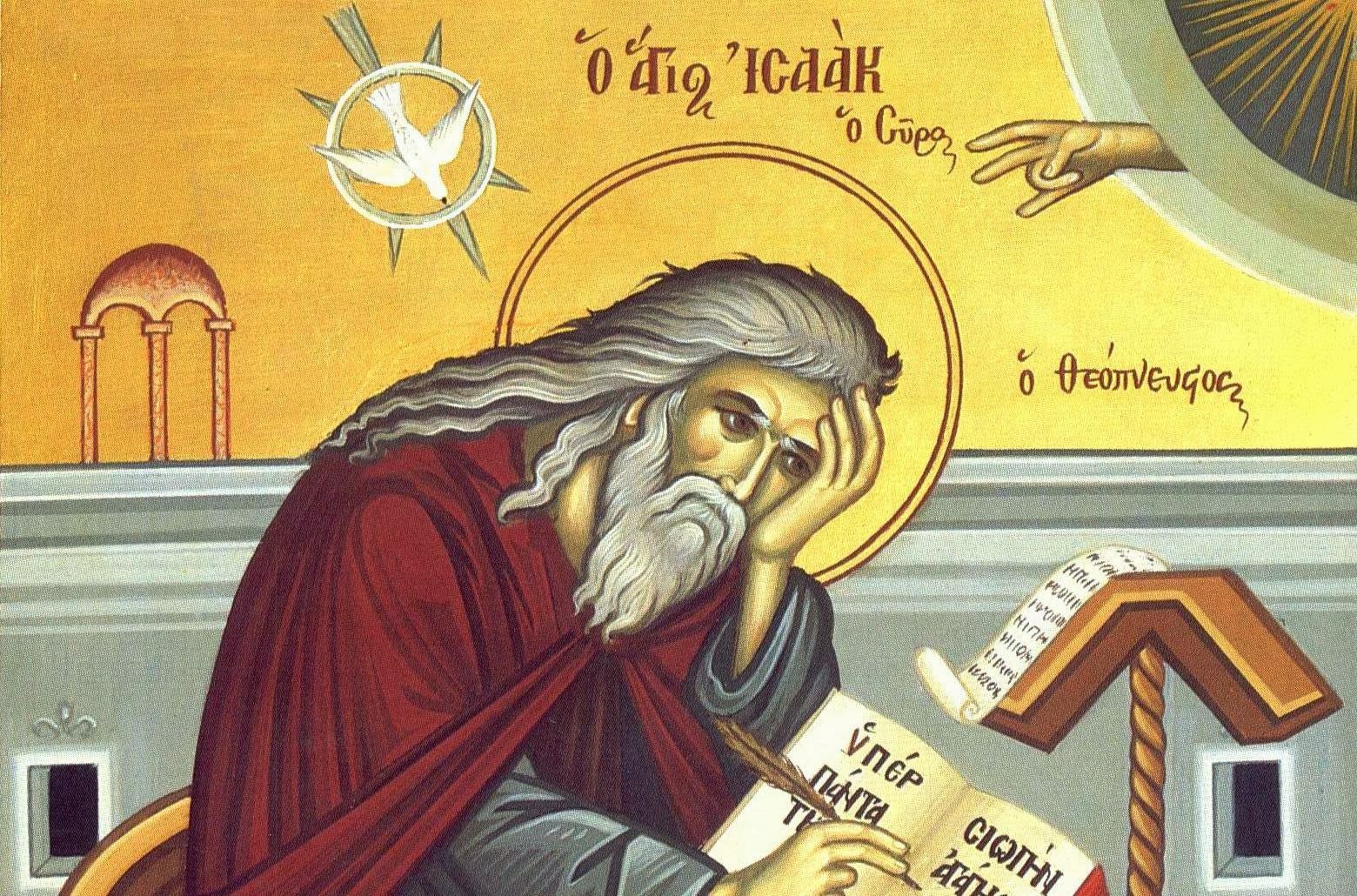 The period of Great Lent is a time of repentance, a time of confession. Our Lord, God and Father seeks for nothing more than our repentance. He wants our sins. We give Him our sins – He forgives us. We give Him our sins – He heals us. We give Him our sins – He sets us free from the bonds of sin and the evil one. We give Him our sins – ‘He kills the fatted calf’ (Luke 15:27). We give Him our sins – And He exclaims ‘for this son of mine was dead and is alive again; he was lost and is found’ (Luke 15:24). Pretty unfair deal! We give Him our sins and we benefit. What are we waiting for? Why procrastinate! Now is the time for repentance! Take care, my brothers and sisters, for the Evil One wars against spiritual strugglers in various ways. He works against man with unimaginabe hypocritical cleverness. Thus, before a sin is committed, the Enemy diminishes its significance in the eye of strugglers. More than any other sin, he puts before them the desire for fleshly pleasure as such a small thing that, prior to succumbing to it, it appears as insignificant to the conscience of a brother or sister as throwing a glass of cold water on the ground. When, however, the fleshly desire is fulfilled, then the Evil One greatly puffs up the sin in the conscience of the sinner, kindling in his soul numberless thoughts of despair, like black waves from Hell, so that the brother’s good thoughts of repentance are submerged and he is hurled into the depths of hopelessness. Seeing from the preceding example, my brothers and sisters, the scheming of the Enemy, take care not to be duped in some misdeed, persisting in it and despairing of your salvation; rather, after rising from your fall, return to the Lord your God. And be confident that He will have compassion on you, for our Lord is tender-hearted and full of compassion, rich in mercy and long-suffering, and He does not punish those who sincerely repent, but immediately greets them with joy. Therefore, when the Enemy of your soul whispers, “You have lost all, you cannot be saved,” answer him: “I do not despair of my salvation, for I have a compassionate and long-suffering God. And this conviction upholds me in my belief that He Who commanded that we forgive our fellow man for his transgressions against us even seven times seventy that He, by the same token, will forgive the sins of all who with their whole souls turn to Him.” With such reflections and with the Grace of God, most assuredly all warfare with Satan will depart from you. |
||||
|
|
رقم المشاركة : ( 13525 ) | ||||
|
† Admin Woman †
|
Advices on the Refugees
 “Elder, what should we do with the refugees that come to our country? Should we help them? They are muslims, they are not like us.” “My child, you know the answer. Didn’t the Lord say that every person is Him; that in every person we should see Christ? And what does it say in the Bible? “I was a foreigner and you took care of me” and thus you should be with me in Paradise.” |
||||
|
|
رقم المشاركة : ( 13526 ) | ||||
|
† Admin Woman †
|
3rd Sunday of the Fast- Sunday of the Precious Cross
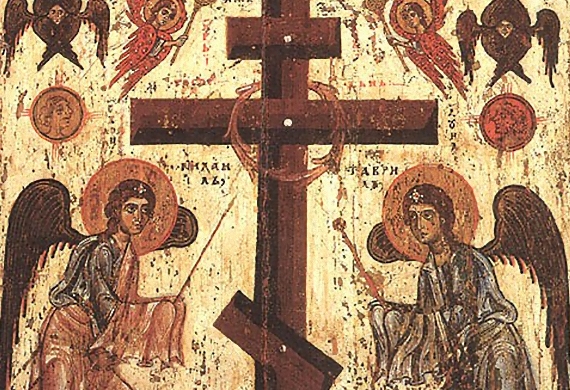 On this day, the Church offers the precious cross for the faithful to venerate, as it is from the cross of Christ that our salvation begins. Sin died there, death died there. But the cross does not stand alone, for the resurrection follows. However, in order for the Lord to reach the resurrection, he had to pass through the cross, to pass through the repercussions of sin, which is death. The Lord resurrected and abolished both death and sin. And it is for this reason that whoever believes in Christ, becomes Christ, and sin –this overwhelming matter –is set in order. And there is no other way for man’s sin be set straight apart from this. But to say ‘I believe in Christ’ means: I give my life, my soul, my very being to Christ. I belong to Christ, I am joined to him. Certainly, by carrying out a struggle, you exert yourself with particular efforts. And yet again, sin remains. Why? Because you attempt to tidy up your soul all on your own. When, however, you struggle –you cut off your will, and do whatever you can against your sins and passions– but within Christ, with faith in Christ, joined to and loving Christ, it is then that you are saved. Along with the cross there are always flowers. The cross is not plain –it is not joyless, but has a sweetness –a sweetness exceedingly gladdening. As much as someone doesn’t want to be distressed, doesn’t want to hurt, or to be crucified, this is how unhappy he is. In proportion to how much one is crucified –how crucified –how much he hurts, and is distressed over sin– to that same degree will grace flow; he is saved, he is freed, and rejoices. These things go together. |
||||
|
|
رقم المشاركة : ( 13527 ) | ||||
|
† Admin Woman †
|
5th Sunday of the Fast
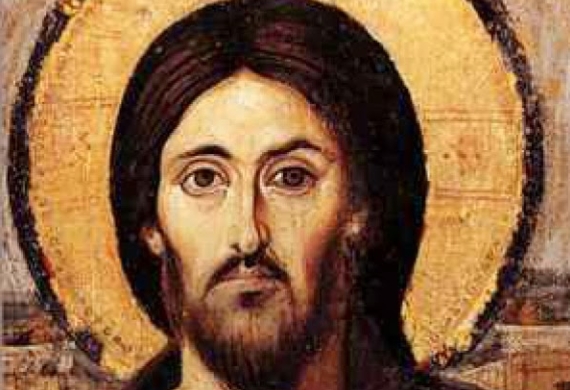 (Mark 10, 32-45) “…behold, we are going up to Jerusalem…” The Lord is going up to Jerusalem to be crucified, to die. His only concern is that he remains faithful and obedient to the will of his Heavenly Father, i.e., to entirely leave himself to the hands of his enemies, that they might afflict him, torture him, and afterwards punish, and crucify him. Nobody forces him to do this. In Christ’s voluntary course towards death, the meaning of life and death for everyone wanting to live according to Christ, to be saved and become holy, becomes even more profound. For, from the moment man sinned, now, it is necessary that he pass through death, as this is the only way for him to be freed from sin and to become new again. Apart from this, there is no other way for this to happen. Death, however, is not just man’s punishment, but also his cure, freedom from sin. However, there is a discrepancy here. Man’s death does not guarantee freedom, nor does it guarantee his salvation and healing from sin. God became man for the following reason: to die not only as a man, but as a sinless man, taking on all of our sins in order to save the human race. We must, however, be careful to avoid thinking that because the Lord suffered everything is finished. The whole of Christ’s giving –his suffering, his death– have as their purpose, on the one hand, to inspire us to become co-sufferers, since it is in suffering that the love of God, his condescension, and his compassion towards man, is manifested. And onthe other hand, to assure each person that, if he is crucified with Christ and loves him, then he will be raised up; he will be saved. (from the Second volume of the Book of Triodions) Holy Hesychasterion “The Nativity of Theotokos” Publications. Archimandrite Symeon Kragiopoulos |
||||
|
|
رقم المشاركة : ( 13528 ) | ||||
|
† Admin Woman †
|
The secret to obtaining the grace of God
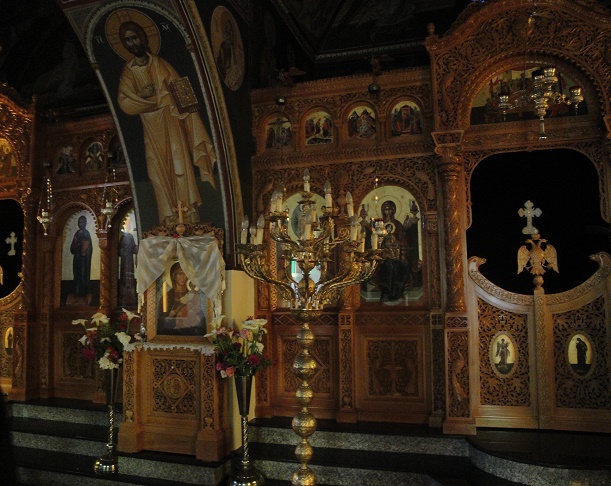 In the struggle for Christian virtue it is easy to lose hope and to stop struggling. Many a times do we say, ‘It’s just too hard!’ In today’s spiritual counsel Abba Zosimas reminds us that there comes a time in the spiritual struggle when we will be able to accomplish all good things without difficulty and toil. This is what Abba Zosimas has to say; The Grace of God always follows close on our intentions and that with the help of Grace we succeed in accomplishing every good thing; yet we do not seek to make a start on doing good, nor do we display a great and eager intention to attract the Grace of God to help us. If we ever do manifest some intention to do good, this intention is paltry and sluggish and does not make us worthy to receive any good from God. Do we not know that all of our spiritual endeavours are reminiscent of a seed and the fruit that it bears? It is like the farmer who sows seeds on his land, but later awaits the mercy of God; God then proceeds to send His bounty with rains and favourable winds at the appropriate time, so that the seeds which the farmer threw into the earth may sprout, grow, and come to perfection. In this way, God helps him to gain many crops from a few seeds. The same thing happens to us, too. Insofar as we sow an intention that is rich and generous in good deeds, then we shall find the Grace from God whereby we will henceforth be able to accomplish all good things without difficulty and toil. We see the same thing happen in the case of skills. He who comes to learn a skill toils at the beginning and experiences failure, and often comes close to despair; in spite of all this, however, he does not lose his resolve, nor is he discouraged, but he tries once more. However often he fails, at least as often he also seeks to correct himself, showing his good intention to the expert. For if he loses heart and withdraws, he will not learn anything; on the contrary, he will only become accustomed gradually to the skill and learn it perfectly when he displays patience and works with exertion and persistence, being corrected by the expert whenever he makes a mistake. After he has learned the skill well, then he performs his work with ease, so as to gain his livelihood from it. He who wishes to attain some virtue should act in this way; that is, at the outset he should arm himself with bravery and show great resolve, and then should continue patiently doing what is good, ever calling on God to help and defend him. He should not be indifferent when he fails, or despair and abandon the attempt, because in that case he will never be able to accomplish anything good. He should get up, whenever he happens to fall, and increase his zeal through hope, awaiting God’s mercy with patience. This is what Abba Moses had to say: “The strength of those who wish to acquire the virtues is as follows: if they fall, let them not lose their courage, but let them be sure to make a new beginning at their endeavor. Insofar, then, as we put all our energy into practicing the virtues, let us await the Lord, showing Him a generous resolve and calling on His aid; and without fail He will strengthen us with His mercy and bestow His Grace on us in abundance, in which case we will accomplish every good easily and without exertion.” |
||||
|
|
رقم المشاركة : ( 13529 ) | ||||
|
† Admin Woman †
|
Facing the Holy Week
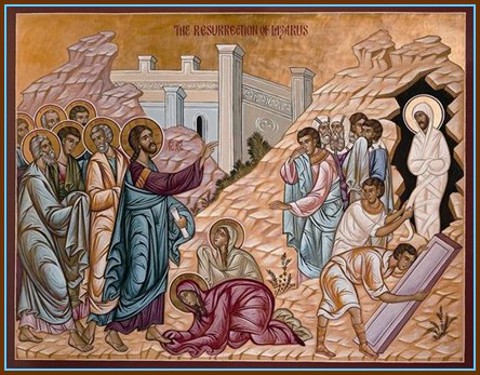 Lazaru’s Saturday marks the end of the second period of the Triodion and, while it marks a joyous interval of one day, the Palm Sunday, we come to the most holy days of the ecclesiastical year, the Holy Week. Lazaru’s resurrection is one of the hopeful pronouncement of so much that will happen one week later, when the “Life of all”, Christ, the dawn of “The first day of the week”, being a Sunday, trampling down death and granting life everlasting, no longer to one person but to the whole of humanity. On the other hand the triumphant entrance of Jesus to Jerusalem, which is celebrated on Palm Sunday, is a panegyric proclamation from the mouths of the babes and sucklings, and of the souls of the God-lovers, because He, Who will be taken like a lamb to the slaughter under the curses of the people of darkness, is the One who comes in the name of the Lord, “the King of Israel”. Not only the old Israel, as ironically was written on the Cross by Pilate but also, the new one, which is the Church! He is the Lord of the whole world, visible and invisible, earthly and heavenly. The Lord of the living and of the dead, Whom “death does not conquer” even though we saw Him hanging on the Cross. Even though we saw Him dead, He will be “most life-giving dead”, Who in three days, by His resurrection, will remove the poisonous sting of death, will deprive Hades of victory, will enlighten the world of the nether regions and will resurrect Adam “with his whole race”, granting inalienable life to His creatures. Having, therefore, on hand those joyous facts, firm hopes which in no way can be contradicted, we are called to follow step by step the painful path of our Lord till His Passion, to His Cross and to His death, like the Church, day after day of the Holy Week guides us. Because without the Good Friday there cannot be Easter. Resurrection without prior death is not possible! Empty Cave without the Cross is something inconceivable. Jesus Christ suffered before He was glorified. He suffered in reality, Not imaginable or assumed. Neither did He suffer simply skin deep, far from it!… “Every part of His holy flesh suffered the disgrace for us”, as states a Troparion of the Praises of Good Friday. His head was injured by the thorny crown. His face was spat upon. His jaws received blows. His mouth the unbearable taste of vinegar mingled with gall. His ears suffered the disgraceful blasphemies. His back the whipping. His hand was disgraced with the mocking reed. His whole body was stretched on the Cross. His joints were pierced with the nails. His side was pierced with the spear. His human dignity was degraded with the mocking red mantle, which like another “straight jacket” they put on Him. His heart was injured by their ungratefulness. Not just by the crowd – “My people, what have I done to you, and what have you given me in return!” – but even of those much closer to Him. Judas who betrayed Him. Peter who denied Him. And the other Disciples (save John) who abandoned Him during His most painful hour on the Cross. And finally the horrible and dreadful death of His body, which sealed the Suffering of His body and the Trying of the soul of “the Son of Man”. All these did take place. They were undeniable facts, most bitter and most horrible. But they had to take place, according the very ancient intention of the Divine Love. Only after these and the suffering of the Chief of our salvation took place, began, through the Resurrection, the never ending Day of the true Light and the actual Life, for all those who wished to make the offered salvation from God, their own. If we belong to these who wish to receive the salvation offered by the love of God, then we must be determined to receive the painful road of suffering. We must march together with Jesus who is hurrying to His Suffering for us. To crucify the unruly cavorting and impure desires of our flesh. To bury our blameful passions indeed those hedonistic tendencies, which are the most dangerous means of destruction. Parallel to this we must be intellectually awaiting by the side of the Cross of our Lord, together with the Theotokos, the Beloved John and the Myrrh-bearing women, as His most grateful children. We must declare together with the pious Centurion that “Truly this man was the Son of God!” and say together with the grateful robber from the depth of our soul: “Remember me, Lord, when You come in Your Kingdom”! Also together with Joseph and Nicodemus we must offer to the Life-giving dead body of our Lord the myrrh of our gratefulness and the aloe of our worshiping tears, to be with the Myrrh-bearing women “very early in the morning” to run to the Grave of Life to meet our Master and Lord, the triumphant Victor of death, offering Him instead of myrrh, a hymn and Doxology befitting God, having previously cleansed our internal world with repentance, to hear from His most holy lips the: “Rejoice”! The most sweet greeting that a human ear could ever receive! So much more when this is coming from the Theanthropic mouth of Jesus, it is not a simple greeting and a wish, but a tangible gift, blessing and grace… Our humble wish and prayer is, at least for all those who read these lines and those who would have the desire to cross the entrance of the church these holy days, is that they be proven worthy, indeed, all of us to be proven worthy to live the suffering of the Passion, to accept the grace of the Cross, to taste the joy of the Resurrection and to walk as enlightened children of the Church ready to receive the blessed hope of Christ’s salvation. Pascha 1997 BY METROPOLITAN JOSEPH OF PROIKONESSOS |
||||
|
|
رقم المشاركة : ( 13530 ) | ||||
|
† Admin Woman †
|
النفس تحتاج أن تفتش على الجمال الخفي للطبيعة الإلهية سفر نشيد الأنشاد  نشيد الأناشيد والآن دعنا ندخل إلى قدس الأقداس، نشيد الأناشيد. إن تعبير “قدس الأقداس” يحمل معنى القداسة الفائقة. إن النص الكريم يعدنا خلال عنوانه “نشيد الأناشيد” بأن يعلمنا سر الأسرار. من المؤكد أن هناك أناشيد أخرى كثيرة في التعاليم الإلهية الموحاة، وهي تعلمنا الكثير في طريق معرفة الله على فم داود، وإشعياء، وموسى وكثيرين غيرهم. وهكذا نفهم من العنوان “نشيد الأناشيد” أنه كما أن أناشيد القديسين تفوق حكمة الأناشيد الدنيوية، بالمثل أيضًا فإن الأسرار المكنوزة هنا تفوق أناشيد القديسين. حقًا إن العقل البشري بحسب إمكانياته المحدودة لا يستطيع أن يكتشف أو يستوعب أسرار النشيد، إذ أنه يحسب اللذه الجسدية (أي الجنسية) رمزًا للحب. يعلمنا هذا السفر أن النفس تحتاج أن تفتش على الجمال الخفي للطبيعة الإلهية، وأن تحبه مثلما يميل الجسد لحب قريبه. يليق بالنفس أن تُخمد العاطفة الجسدية حتى أنه حين تُطفئ كل عاطفة جسدية تتقد عقولنا بالعاطفة الروحية وحدها وتتمتع بالدفء خلال هذه النار التي جاء الرب ليلقيها على الأرض (لو 12: 49). كاتب السفر والآن وقد استفضت الحديث عن السامعين لهذه الكلمات السرائرية وكيف قد حان الوقت لتدبير نفوسهم لنبدأ بتفسير الكلمات الإلهية لسفر نشيد الأناشيد. لنبدأ حديثنا بدلاً له العنوان. إن نَسب السفر لسليمان لم يأتِ مصادفة، وهذا النَسب يفيد بأن يُعد القارئ لاستقبال شيء عظيم ومقدس. فشهرة سليمان بالحكمة عظيمة وذات تأثير على كل أحد. لذلك فإن ذكر اسمه في مطلع السفر يزيد من توقعات القارئ لشيء عظيم يليق بمثل هذه الشهرة. في فن الرسم نجد الألوان المختلفة وقد تآلفت معًا لتقدم لوحة فنية جميلة. ولكننا نرى أن الشخص الذي ينظر إلى الصورة التي رسمها الفنان مستخدمًا الألوان بمهارة لا يركّز نظره على الألوان بل على الإطار العام للوحة. هكذا الأمر بالنسبة لهذا السفر الماثل أمامنا،فعلينا ألا نهتم بمادة اللون (أي الكلمات) بل بالأحرى علينا أن نهتم بصورة الملك المعبَّر عنها بمفهوم الطهارة. إذ أن اللون الأبيض والأصفر والأسود والأحمر والأزرق أو أي لون آخر ما هو إلا هذه الكلمات بمعانيها الواضحة – فم، قبلة، مر، سلك، الأطراف الجسدية، المخدع، الخادمات… – وهكذا. إن الشكل الذي تكونه هذه الكلمات هو: البركة، الانفصال عن الشر، الاتحاد بالله، البعد عن الشر، وحب ما هو حقًا جميل. هذه المفاهيم تشهد بأن حكمة سليمان قد فاقت حدود الحكمة البشرية. ماذا يحيرنا أكثر هو أن سليمان يجعل الطبيعة البشرية تتنقى من الشهوات، ويعلمنا ذلك مستخدمًا كلمات مفعمة بالعاطفة المتقدة! إذ أن سليمان لا يتحدث عن ضرورة البعد عن انفعالات الجسد أو إماته أعضائنا التي على الأرض، أو أن نحجم عن كلمات العاطفة المتأججة، لكنه بالحرى يحث النفس أن تسعى للطهارة خلال كلمات تبدو أنها تحمل معنى عكسيًا، إذ أنه يشير إلى معاني نقية عفيفة خلال لغه حِسية ملموسة. خلال مقدمة النص نتعلم شيئًا واحدًا: هؤلاء الذين دخلوا إلى أعماق أسرار هذا السفر ليسوا بشرًا بعد، بل قد تحولوا بالطبيعة خلال تعاليم الرب إلى ما هو إلهي بالأكثر. الله الكلمة قد شهد لتلاميذه بأنهم مميزون عن البشر. وقد جاء هذا التمييز حين قال لهم: “من يقول الناس إني أنا؟” (مر 8: 27)؟ يستخدم سفر النشيد كلمات ظاهرها يشير إلى التمتع باللذة الجسدية. ولكنها في الواقع لا تتضمن أي معنى غير طاهر أوغير لائق، بل هي تقودنا إلى فلسفة الأمور المقدسة خلال المفاهيم الطاهرة. إنها توضح لنا أننا لسنا بعد من لحم ودم ذي طبيعة بشرية لكنها بالحري تشير إلى الحياة التي نتطلع إليها عند قيامة القديسين، حياة ملائكية خالية من كل شهوة. قُبلات فمه بعد القيامة، يتحد الجسد – الذي صار في عدم فساد – مرة آخرى مع النفس. إن الشهوات التي تحارب جسدنا المائت الآن لن تكون بعد بل تسكن جميعها. وسيبطل النزاع بين الجسد والنفس. ولن تكون هناك بعد حرب الشهوات ضد ناموس العقل، حيث تهزم النفس وتصير أسيرة الخطية. حينئذ تتنقى الطبيعة من كل هذه الأشياء وتكون الروح واحدة (أي لا تعارض بين الجسد والروح) وسوف يبطل كل تدبير جسدي للجنس البشري. وهكذا فإن النشيد يحثنا على الرغم من أننا مازلنا في الجسد ألاَّ تكون أفكارنا جسدانية؛ بل بالحري علينا أن نهتم بالروح وحدها وأن ننسب كل مظاهر العاطفة في النص إلى صلاح الله الفائق كذبيحة طاهرة غير دنسة. لأن الله وحده هو عذب بالحقيقة، مشتهى الأمم ومستحق أن يُحَب. إن تمتعنا الحالي بالله هو نقطة البداءة لنصيب أكبر من صلاحه ويزيد من شوقنا إليه. وهكذا ففي أسفار موسى (خر 33: 11) يقول إن العروس أحبت العريس. كما تقول عروس النشيد “ليقبلني بقبلات فمه”. إن موسى قد خاطب الله وجهًا لوجه كما يشهد الكتاب (تث 34: 10) وهكذا ازداد شوقه إلى هذه القبلات بعد رؤيته لله. لقد بحث عن الله وكأنه لم يره قط. لذلك فهؤلاء الذين لديهم رغبة دفينة واشتياق لله فإن هذا الاشتياق لا يتوقف بلكلما تمتعوا بالله كلما اِزداد اِشياقهم تأججًا إليه. إن الروح رغم اتحادها مع الله فهي لا تشعر بملء السعادة مطلقًا. كلما تمتعت بجماله زاد اشتياقها إليه. إن كلمات العريس روح وحياة (يو 5: 24)، وكل من التصق بالروح يصير روحًا. كل من التصق بالحياة ينتقل من الموت إلى الحياة كما قال الرب. وهكذا فالروح البكر تشتاق دائمًا للدنو من نبع الحياة الروحية. النبع هو فم العريس الذي تخرج منه كلمات الحياة الأبدية. أنه يملأ الفم الذي يقترب منه مثل داود النبي الذي اجتذب روحًا خلال فمه (مز 118: 131). لما كان لزامًا على الشخص الذي يشرب من النبع أن يضع فمه على فم النبع، وحيث أن الرب ذاته هو النبع كما يقول: “إن عطش أحد فليقبل إليَّّ ويشرب” (يو 7: 37)؛ لذلك فإن الأرواح العطشانة تشتهي أن تضع فمها على الفم الذي ينبع بالحياة ويقول: “ليقبلني بقبلات فمه” (نش 1: 2). من يهب الجميع الحياة ويريد أن الجميع يخلصون يشتهي أن يتمتع كل واحد بنصيب من هذه القبلات، لأنها تطهر من كل دنس. اَعتقد أن الرب كان يوبخ سمعان الأبرص حين قال له: “قبلة لم تقبلني” (لو 7: 45). كان يعني بذلك: لقد كان يمكنك أن تبرأ من مرضك لو أنك انتزعت الشفاء بشفتيك. ولكن على الأرجح أن سمعان لم يكن مستحقًا للحب، إذ أن مرضه سبَّب له نموًا مطردًا في جسده، وقد ظل غير مشتاق لله بسبب مرضه. ولكن حينما تتطهر الروح ولا يعوقها بعد برص الجسد تبدأ في التفتيش عن كنز الصالحات. اسم هذا البيت الذي يضم الكنز هو القلب. من هذا الكنز يمتلئ الثديين بغنى اللبن المقدس الذي به تتغذى الروح وتنتزع البركة بما يوازي إيمانها. لذلك تهتف الروح: “لأن حبك (أي ثدياك) أطيب من الخمر” ويشير بالثدي إلى القلب. ولا نخطئ إذا حسبنا أن القلب هنا ما هو إلاَّ قدرة الله الخفية السرية. من الأرجح أن نعتبر أن الثديين هما عمل الله القوي من أجلنا الذي به يشبع حياة كل منا بما يناسبه. إن فلسفة سفر النشيد تعلمنا بطريق غير مباشر درسًا آخر ألا وهو إنَّ فهمنا للأمور له شقان: مفهوم جسدي ومفهوم روحي. كما يقول الحكيم في سفر الأمثال، “وتجد معرفة الله” (أم 2: 5). هناك نوع من التناظر بين أعمال الروح وأعمال الجسد الحسية، وهذا ما نتعلمه من هذا النص. إننا نميز الخمر واللبن عن طريق حاسة التذوق، بينما الحقائق الروحية تُدرك خلال قدرة الروح على الفهم والتعقل. إن القبلة نتيجة لحاسة اللمس حين تتلامس شفاة شخصين. على الجانب الآخر هناك نوع آخر من التلامس الروحي للكلمة والعمل يتم بطريقة روحية غير جسدية. كما يقول معلمنا يوحنا: “… الذي شاهدناه ولمسته أيدينا من جهة كلمة الحياة” (1 يو 1:1). بالمثل فإن رائحة المسيح الزكية لا نشتمَّها جسديًا، ولكن خلال قوة روحية غير مادية، أي بقوة الروح. لذلك تسترسل عروس النشيد في آياته الأولى قائلة: “لأن حبك أطيب من الخمر. لرائحة أدهانك الطيبة اسمك دهن مهراق.” [ع1-2]. اللبن الروحي أفضل من خمر حكمة العالم ما تشير إليه هذه الكلمات لا يُستهان به. فإنه بمقارنة التمتع بلبن الثديين المقدس والتمتع بشرب الخمر، أظن أننا نتعلم أن الحكمة البشرية والعلم وقوة الملاحظة وفهم الأمور المبدعة… كل ذلك لا يضاهي الشبع الروحي بالتعاليم الإلهية في بساطته. إن اللبن طعام الأطفال يمنحه الثديان، بينما الخمر الذي يمنح القوة والدفء هو متعة لمن هم أكثر نضوجًا واكتمالاً. ولكن على الرغم من ذلك فإن حكمة العالم لا تضاهي التعاليم الطفولية للعالم الروحي المقدس. وهكذا فإن الثديين المقدسين أفضل من الخمر البشري، ورائحة المسيح الزكية لهي أطيب من أي عطر آخر. رائحة أدهانك أطيب من كل الأطياب يبدو لي أن ذلك يعني ما يلي: نحن نفهم أن العطور تمثل الفضائل المختلفة: الحكمة، العدل، ضبط النفس، الجَلَد… وهكذا. إذا ما تعطرنا بهذه العطور، كلٌّ قدر استطاعته واختياره فيكون لكل منَّا رائحة طيبة خاصة، لواحد حكمة أو ضبط للنفس، لآخر جَلَد أو عدل أو أي فضيلة أخرى. آخر يمكن أن يكون له رائحة طيبة داخليًا (داخلية) نتيجة لامتزاج كل هذه العطور. ولكن كل هذه معًا لا تقارن بالفضيلة السماوية الكاملة. كما يقول حبقوق النبي: “جلاله غطى السموات” (حب 3:3). هذه هي حكمة الله، عدل الله، حق الله وما إلى ذلك بصورته المطلقة. لذلك يقول إن رائحة الدهن السماوي تبهج النفس بما لا يقارن بأي نوع آخر من العطور المتعارف عليها. الله لا يُحدّ باسم يعود عريس النفس مرة أخرى ليقدم فلسفة أكثر سموًا، ويوضح أن القوة الإلهية لهي فائقة تمامًا، لا يمكن إدراكها بالمفاهيم البشرية. يقول النص: “اسمك دهن مهراق” [ع3]. يبدو لى أن هذه الآية تشير إلى الآتي: إن الطبيعة (الإلهية) غير المحدودة لا يمكن حصرها بدقة في اسم؛ بل فوق ذلك فإن كل مقدرة على الفهم وكل صيغة للكلمات والأسماء مهما بدت عظيمة وتناسب مجد الله فهي غير قادرة على إدراك حقيقته. ولكننا نلقي الضوء ونقتفي آثار ما نجهله متحسسين الطريق بكلماتنا، وأيضًا بالمناظرة لما نلمسه ندرك الأمور غير مدركة. ومهما كان الاسم الذي نختاره لنُعبر به عن رائحة المسيح الذكية فنحن لا نستطيع أن نُعبر عن قدر هذه الرائحة، ولكننا إنما نكشف عن مجرد أثر بسيط للرائحة المقدسة باستخدام اصطلاحاتنا اللاهوتية. إذا ما سكبنا عطر من إناء يصعب أن نتعرف على طبيعة هذا العطر. ولكن إذ يتبخر الأثر البسيط من العطر المتخلف في الإناء نستطيع أن نكِّون فكرة عن العطر الذي سُكب منه. وهكذا نعلم أنه أيًا كان العطر المقدس في جوهره فهو يفوق كل اسم وفكر. حقًا إن العجائب التي نشاهدها في الكون تعطي مادة للمصطلحات اللاهوتية التي بها ندعو الله حكيمًا، قديرًا، صالحًا، مقدسًا، مباركًا، أبديًا، ديانًا، مخلصًا وهكذا. كل ذلك يعطي دلالة بسيطة عن نوعية رائحة المسيح وخاصيتها حيث تحتفظ الخليقة بآثار الرائحة المقدسة من خلال عجائبها المنظورة كما في مثل إناء العطر. “لذلك أحبتك العذارى” [ع3]. هنا تذكر العروس لماذا مالت العذارى إليه وأحبته. من يستطيع ألا يحب مثل هذا الجمال طالمًا له العين الثاقبة التي تستطيع أن تُدرك مدى جماله؟ إن الجمال الملموس لهُو عظيم، ولكن ما هو بالتأكيد أعظم منه هو الجمال الذي نلمحه بمجرد النظره الخاطفة لهيئته الخارجية. الحب للناضجين! لا تثير الشهوات الجسدية الأطفال، لأن الطفل غير قادر على الإحساس بها، وهي أيضًا لا تمثل مشكلة بالنسبة للشخص المتقدم في العمر. هكذا الأمر أيضًا بالنسبة للجمال الإلهي: فإن الطفل الذي تهزه كل ريح تعليم والإنسان المتقدم في العمر الذي قد قارب الموت كليهما غير قادرين على الشهوة الجسدية. إن الجمال الإلهي لا يحرك مشاعر مثل هؤلاء، ولكنه يحرك مشاعر تلك الروح التي قد تجاوزت مرحلة الطفولة وقد بلغت زهرة شباب النضوج الروحي. إذ أن مثل هذه الروح يسميها السفر “العذارى” [ع3]؛ إذ ليس بها أي علامة من علامات تَقدُّم العمر من بقع أو تجاعيد أو ما شابه ذلك؛ فهي لا تفتقر إلى الإدراك الحسِّي لمرحلة الطفولة ولا هي واهية بسبب الكهولة. مثل هذه الروح تعيش في طاعة لأعظم وصية، ألا وهي أول وصية في الناموس أن تحب هذا الجمال الإلهي من كل قلبك ومن كل قوتك (تث 6: 5). إن العقل البشري غير قادر على إيجاد أي وصف، أو تشبيه أو تعبير يناسب هذا الجمال. لذلك فقد نمت تلك العذارى في الفضيلة، وقد دخلن حجال العرس في الوقت المناسب ليكتشفن الأسرار الإلهية. الآن قد أحببن جمال العريس وخلال هذا الحب دنون منه. لأنه العريس الذي يكافِئ من يحبونه ويقول على لسان الحكيم: “أحب الذين يحبونني”، “عندي الغنى والكرامة” (إن العريس ذاته هو هذا الغنى) “وأملأ خزائنهم” (أم 8: 17، 21). لذلك تشتاق الأرواح إلى عريسها الحيّ الذي لا يموت وتتبع الرب الإله كما هو مكتوب (هو 11: 10). أنهم يحبونه، ويمشون وراءه بسبب رائحته الذكية، أنهم يتقدمون إلى ما هو أمامهم وينسون ما هو وراء. “اجذبني وراءك فنجري” [ع4]. هؤلاء الذين لم يبلغوا بعد كمال الفضيلة وهم بعد أحداث يقدمون وعدًا بأن يسعون نحو الهدف الذي يمثله الرائحة الذكية. لأنهم يقولون، “اجذبني وراءك فنجري”. أما الأرواح الأكثر كمالاً فقد ركضت بأكثر جدية وحققت الهدف فعليًا من هذا السير وقد استحقت الكنز المختزن. إذ تقول: “أدخلني الملك إلى حجاله” [ع4]. لقد اشتهت أن تلمس ما هو طيب بشفتيها وقد لمست الجمال بمقدار قوة صلاتها. فقد صلَّت [ع2] لتستحق قبلة خلال الاستنارة التي يمنحها إياها الكلمة). والآن خلال ما حققته بلغت ذهنيًا إلى عمق آخر للأسرار، لكنها تصرخ معلنة أنها لم تدرك إلا مدخل الصلاح. إن قبلة العريس قد منحتها استحقاق باكورة نِتاج الروح، فتقول أنها تبحث عن أعماق الله في عمق أقداس الفردوس، وكما قال معلمنا بولس الرسول العظيم: “ما لم تره عين وما لم تسمع به أذن” (2 كو 12: 4). الآن نراه يكشف الحديث عن دور كنسي، لأن أولئك الذين أرشدتهم النعمة وقد صاروا شهودًا للكلمة، لا يكتموا الحق محتفظين به لأنفسهم، بل بالأحرى يبشرون به آخرين ممن لحقوهم. لذلك تقول العذارى للعروس التي تمتعت أولاً بالصلاح إذ التقت بالكلمة وجهًا لوجه واستحقت أن تتعرف على الأسرار الخفية: “نبتهج ونفرح بك، نذكر حبك أكثر من الخمر” (نش 1: 4). لأنك تحب ثدييّ الكلمة أكثر من الخمر فسوف نتشبه بك، ونحب ثدييك أكثر من الخمر البشري، لأنه خلالهما يتغذى الأطفال في المسيح يسوع. حتى نوضح الغرض من هذه الفقرة علينا أن نركز اهتمامنا بالآتي: إن يوحنا الحبيب الذي اتكأ على صدر الرب أحب ثدييّ الكلمة (يو 13: 25)؛ وإذ وضع قلبه بقرب منبع الحياة تمتع بامتصاص الأسرار الخفية التي في قلب الرب كما يمتص الإسفنج. يعطينا يوحنا الثدي الغني بالكلمة فنمتلئ من الصلاح الذي أخذه يوحنا من منبع الصلاح، معلنًا عن الكلمة الأبدي. لذلك يحق لنا الآن أن نقول: “نذكر حبك أكثر من الخمر” إذا ما صرنا كالعذارى ولم نعد أطفالاً في أذهاننا تحت نير نوع من التفاهة الطفولية، وإذ لم نتدنس بعد بالخطية فندنو من الموت في كهولتنا. لذلك دعنا نحب فيض التعليم الإلهي لأنهم “بالحق يحبونك” [ع4]. هذا هو التلميذ الذي كان يسوع يحبه، والمسيح هو الحق. ينسب النص هنا للمسيح اسمًا أكثر جمالاً وملاءمة للرب، أفضل من داود النبي الذي قال: “أن الرب مستقيم” (مز 9: 15). إن الرب يسمى بالحق في هذا النص. لأنه يجعل المعوج مستقيمًا. ليصير كل المعوج مستقيمًا والعراقيب سهلاً (إش 40: 4) بنعمة ربنا يسوع المسيح الذي له المجد دائمًا أبديًا آمين. يتبع….. القديس غريغوريوسالنيصي |
||||